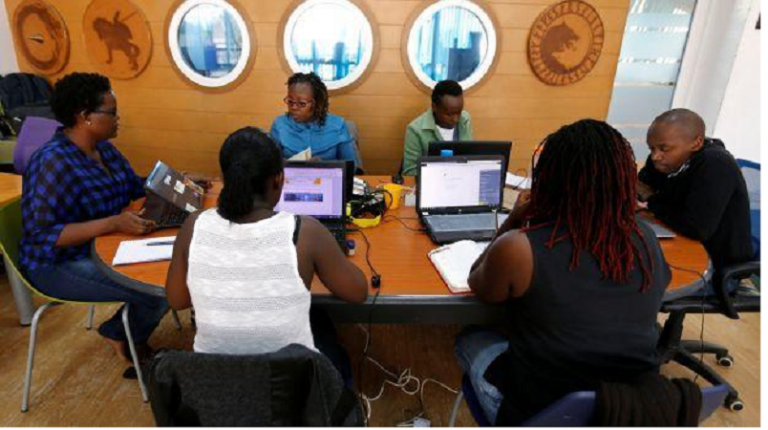
In the realm of academic research, scholars across various disciplines strive to explore and understand the complexities of the world. They delve into social sciences, natural sciences, engineering, medicine, and more to uncover solutions to the problems and needs that society faces. However, their findings are often confined to the realm of academia, primarily residing within the pages of journals and books. While this knowledge is invaluable within academic circles, there is a growing need to bridge the gap between the academic world and the business sector, particularly in Africa. This piece explores how journal articles can be transformed into startup businesses in Africa, catalyzing economic growth, innovation, and problem-solving in the continent.
The Rich World of Academic Research
Academic research forms the bedrock of innovation, progress, and development. It is a repository of knowledge, ideas, and discoveries across numerous fields. Researchers invest their time and expertise to examine critical issues, conduct experiments, and analyze data.
This wealth of information is vital for the development of societies and the enhancement of human well-being. Unfortunately, this treasure trove of knowledge often remains hidden in academic journals, accessible primarily to scholars and academics who are well-versed in the intricacies of academic language and culture.
The Disconnect between Academia and Business
Africa, like many other parts of the world, faces a glaring disconnect between academic research and its application in the business world. While academic research is laudable for its contributions to knowledge, it often falls short in delivering practical solutions that can directly address societal challenges. Business enterprises, on the other hand, are well-equipped to translate research findings into innovative products and services that can improve the lives of people. This disconnect is particularly problematic in Africa, where pressing issues such as healthcare, agriculture, and renewable energy demand innovative solutions.
Unlocking the Potential of Journal Articles
To bridge this divide, we must explore ways in which journal articles can be leveraged to catalyze startup businesses in Africa. Here are several key strategies to achieve this transformation:
Knowledge Translation: The first step in turning journal articles into startups is translating complex academic language into accessible and actionable information. This involves making research findings comprehensible to non-experts. Researchers can work alongside experts in fields like communication, marketing, and entrepreneurship to help distill their work into practical insights.
Identifying Market Potential: Entrepreneurs and business experts can collaborate with researchers to identify market opportunities for the knowledge contained in journal articles. This requires a deep understanding of the needs and challenges that exist in African societies.
Entrepreneurial Training: Researchers may need to undergo training in entrepreneurship and business development to effectively convert their findings into marketable products or services. These skills are crucial in navigating the challenges of starting and running a business.
Funding and Support: Governments, organizations, and investors can play a pivotal role by providing funding, mentorship, and resources to researchers looking to launch startups based on their research. Creating a supportive ecosystem for entrepreneurship is essential.
Collaboration and Networking: Building bridges between academia and the business world is critical. This can be achieved through collaborative events, conferences, and partnerships that foster relationships between researchers and entrepreneurs.
Case Studies: Turning Research into Reality
To illustrate the transformative potential of this approach, let’s explore a few hypothetical examples:
Healthcare Innovations: Suppose a researcher in a medical field has published an article on a novel diagnostic method for a prevalent disease in Africa. By working with entrepreneurs and healthcare professionals, this research could be used to develop affordable and accessible diagnostic tools, improving healthcare outcomes across the continent.
Agricultural Advancements: Africa faces numerous challenges in agriculture, from droughts to crop diseases. A researcher specializing in agriculture could partner with agribusiness experts to turn their findings on drought-resistant crops into a startup that offers improved seeds and sustainable farming practices to local farmers.
Renewable Energy Solutions: Research into renewable energy sources, such as solar or wind power, could be the foundation for a startup specializing in affordable and clean energy solutions. This could revolutionize energy access in remote areas and reduce the continent’s reliance on fossil fuels.
Africa is brimming with potential, and academic research can serve as a catalyst for positive change. By bridging the gap between the academic world and the business sector, the continent can harness the knowledge generated by its scholars to drive innovation, address pressing challenges, and fuel economic growth. The journey from journal articles to startups is not without its challenges, but the possibilities it holds for Africa’s development are immense. This transformation is not only feasible; it is imperative for the continent’s progress and prosperity.

